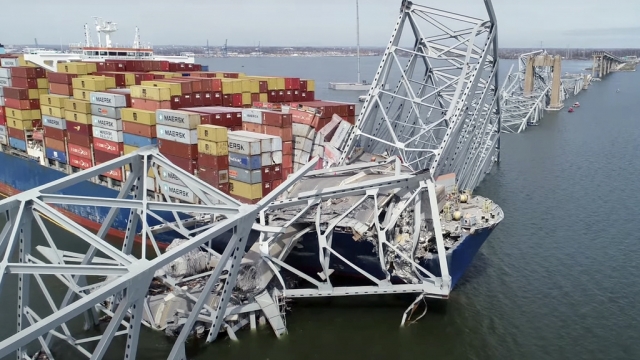It's been a little over 48 hours since the horrific collapse of the Francis Scott Key Bridge in Baltimore, Maryland, that claimed at least six lives. Now the question revolves around how quickly funding will become available to start the rebuilding process and reopening of the busy port.
President Joe Biden has promised that the federal government will cover the entire cost of reconstructing the bridge. And this isn't the first time that Congress has been forced to act after a disaster like this.
In 2007, when a major bridge collapsed near Minneapolis, lawmakers quickly passed legislation providing $250 million to rebuild. The vote was unanimous and former President George W. Bush signed it into law less than a week after the collapse.
The process with Baltimore's Key Bridge will not be as quick.
SEE MORE: Meet the man who captured the Baltimore bridge collapse
For one, Congress is out of Washington on recess until April 8. Additionally, there's the fact that passing any spending bill in the current political environment has proven difficult.
While disasters like the Baltimore bridge collapse are typically immune from the common partisan divide we see on Capitol Hill, things like funding for the war in Ukraine,the southernborder crisis, humanitarian relief in Gaza, and funding for Israel are other spending fights lawmakers face when they return. However, the White House is anticipating that funding for the bridge reconstruction will eventually get passed.
Preliminary analysis by the Army Corps of Engineers has already begun and some emergency funds may also be available right now through the Federal Highway Administration. Maryland's Democratic Sen. Chris Van Hollen has also hinted that the shipping company involved in the collapse could potentially pay for some of the rebuild if they are found liable.
When the bridge was built in 1970, it took five years and $60 million to complete. But that cost will be considerably higher this time around and there is currently no exact government estimate.
SEE MORE: A list of major US bridge collapses caused by ships and barges
Apart from the federal response, state lawmakers in Maryland are also considering taking action to help workers who may lose out on pay because of the collapse impacting operations at the Port of Baltimore.
"Over 15,000 in the Balt region rely on daily operations at Port of Baltimore to put food on the table," state Sen. Bill Ferguson wrote on social media. "...We are drafting an emergency bill to provide for income replacement for workers impacted by this travesty."
Trending stories at Scrippsnews.com



